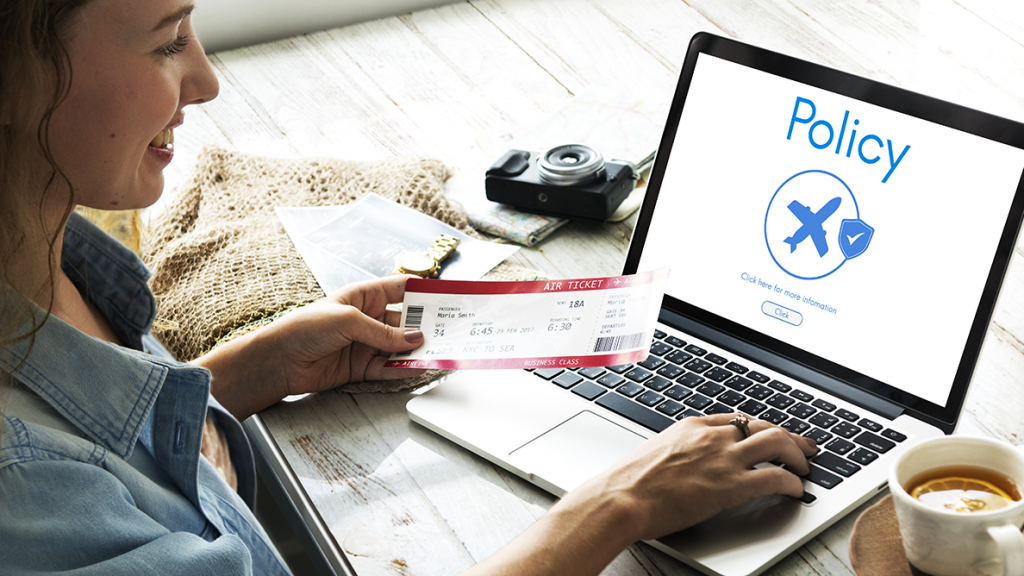Six ways companies can transform their travel data into tangible actions

Big Data is permeating every business sector in the world today. However, nowhere is the impact of data felt more perceptibly than in the travel industry.
Business Travel programmes can deliver huge amounts of data at every step of the traveller’s journey from details of hotel bookings and flights to individual passenger expenses and preferences for food, seats and rooms. However, all this data is worthless unless companies have the technology to mine, collate, examine, correlate and analyse it in an effective way.
Nicole Adonis, General Manager FCM South Africa, explains that FCM has invested heavily in data technology that can reveal patterns and trends which will in turn lead to an improved business travel programme performance.
Says Adonis: “Making effective decisions at the highest levels of your company’s future spend and travel preferences starts with the historic data you build up every minute of every day through bookings and expense spending.”
Adonis highlights six practical ways in which travel companies can transform their travel data into cost-saving and tangible actions.

1. Let data guide the safety of your travellers
Data can be a great tool to ensure the safety and well-being of travelling employees. The company’s duty of care extends to anywhere a staff member is in the world when they are away on business travel – whether for their security or their comfort.
Technology such as FCM’s data technology, captures external and internal security information in real-time and uses this to alert the company when travellers are in high-risk destinations. If an incident happens in a city or country where employees are travelling, the dashboard will automatically notify the company so it is possible to act fast if a crisis occurs.

2. Reduce traveller friction thanks to data insights
Predictive data capabilities can reduce traveller friction by identifying how travellers behave in the travel decisions they take. This can help shape the company’s travel programme by identifying patterns that can help increase compliance.
FCM recently developed traveller level analytics to benchmark the likely impact of business travel on employees. The technology reviews different elements such as low cost carrier usage, hours in the air, single flight legs, travel over weekends and other metrics. The concept is then taken a step further by also looking at what the cost increase implications would be on the programme if new ideas around travellers’ welfare were implemented.
Is it for example worth allowing travellers to upgrade from economy to premium economy if it makes them happier? FCM found that in some instances changing an element of the policy to give travellers greater allowances resulted in a win for traveller satisfaction, while the cost increase to the programme was minimal.

3. Use data to nudge travellers towards policy compliance
Why are travellers not following the travel policy? This is a question asked by travel managers around the world.
It can be a thankless task having to report to management that employees are acting out of policy. That is why FCM developed its concept of Business Intelligence 3.0.
Says Adonis: “FCM’s Data Snapshots use the decentralisation concept to send a message directly to the traveller about their booking behaviour and the cost impact their behaviour has – both negative and positive.”
If travellers are booking in advance, using preferred suppliers and driving savings for the business, this will be commended. But if they are booking at the last minute, choosing expensive fares and using non-preferred suppliers, they will be told about it, along with information about the cost of their booking practices.
4. Data can guide a travel pricing strategy
With the cost of business travel remaining under immense scrutiny, data can also be used to index, track and analyse prices to understand trends, track changes in pricing and build an optimum pricing strategy that will benefit the business. This may return bigger savings than simply arbitrarily downgrading hotels, cars and flights to keep costs under control in the short-term.
For example, if you are using hundreds of different hotels across dozens of cities, by drilling down more deeply into this data you could see where to cut, merge or increase supply to obtain discounts and better value-for-money.

5. Personalise every employee’s travel experience
Do you know whether the travellers in your company prefer unlimited Wi-Fi to a daily breakfast? Do they prefer flying on a legacy or a low-cost carrier?
This is where Big Data helps Travel Managers understand and deliver on their business travellers’ demands for a personalised experience.
Most companies now have four generations of staff in their employ, all of whom have different requirements and levels of technology adoption. Relevant data can tailor a business travel programme that meets their specific needs, ensuring the different savings made on personalising their service add up.
It is possible to use predictive functionalities to present your travellers with only those choices that are going to be most pleasing to them. This can considerably speed up the process of planning and booking.

6. Get a clear view of your total travel spend – no matter through which channel you choose to book
As the sharing economy continues to gain ground and alternative booking methods become increasingly popular, data gathering can become complicated.
It is important for companies to work with a TMC with a data platform that connects with all travel sources, including booking websites such as hotel.com or Expedia, as well as with different expense providers. By integrating third-party expense data, leakage in a client’s travel programme can be identified and analysed to see where discounts were not leveraged to maximise savings.
All of these data feeds should be integrated directly into one reporting platform that shows a consolidated and full view of the business travel programme.
“Data can go a long way in helping companies make tangible changes in their travel programmes,” says Adonis. “Smarter technology coupled with improved and more plentiful data sources means companies won’t be looking at how to shave small and often inconsequential individual traveller amounts of money from their spend. Instead, they will see exactly how and where to make the greatest savings across the board.”